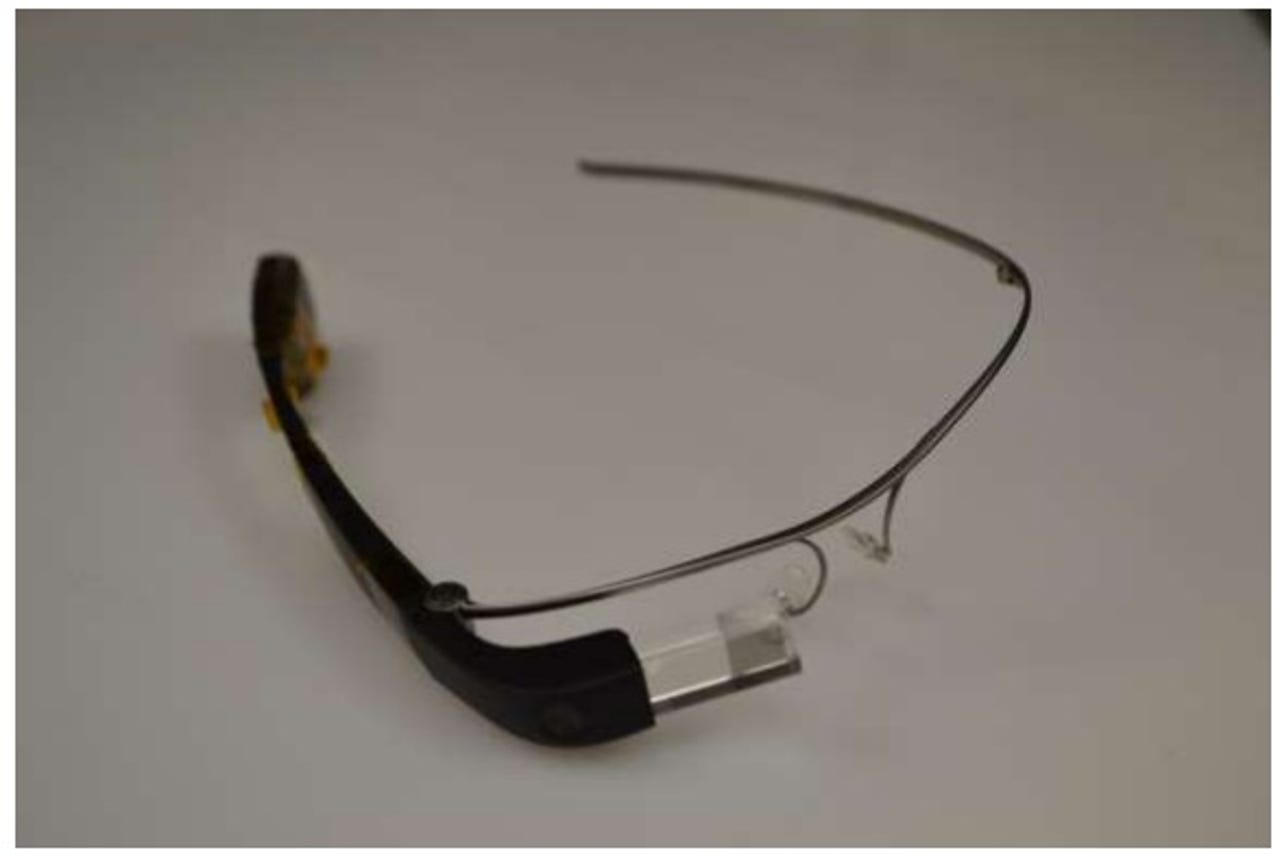Google Glass: New patents filed with FCC

Google has filed patents for a new version of its previously sidelined Glass device with the United States Federal Communications Commission (FCC), revealing that it is continuing to work on development and release of the wearable.
The tech giant filed internal photos, test reports, test setup photos, a user manual, a request for confidentiality, and information on radio frequency absorption for the device, dubbed GG1, with the FCC.
According to the user manual, the power button is positioned on the back of the device.
"The plastic cube just above your right eye allows you to interact with the device. The Home Screen is your starting point. By default, the display shows you the current time," the document explains.
"The camera button is located on top of the device near the display. Press the camera button to take a photo. Hold it down to record a video. The green light shows when the camera is on."
The flat area along the side is the touchpad, which Google says is used to navigate through what it calls "cards" on the device's display.
Google also submitted documents authorizing company UL Verification Services Inc to act on its behalf in getting documents approved by the FCC.
While Google's confidentiality filing argued that "the technology that is the subject of the certification application is subject to intense competition from other manufacturers and service providers that are developing competing services and technology", its competitors have done little in the space.
Microsoft's HoloLens is an augmented-reality platform rather than a simple smart glasses device, while Apple CEO Tim Cook has previously stated that Google Glass is not a mass market device. Cook conceded that Glass could "appeal to certain markets," adding that wearables is a growing sector.
Launched in 2012, Google Glass faced privacy concerns once the hype, along with investments, dried up. Consumers and developers were also unwilling to pay $1,500 for the device, which saw little marketing and an initial limited release, both of which contributed to its market failure.
Featured
The Explorer program was closed down, with sales of the device ending in January. However, instead of abandoning Glass in its entirety, Google moved the project over to a home automation unit named Nest, which was acquired by Google for $3.2 billion in 2014 and is led by former Apple executive Tony Fadell.
"Early Glass efforts have broken ground and allowed us to learn what's important to consumers and enterprises alike," Fadell said in January.
"I remain fully committed to Nest and am equally excited about our work there, which continues to accelerate."
Google executive chairman Eric Schmidt in March added that the company would not be abandoning plans to create Google Glass, calling the project "fundamental".
"It is a big and very fundamental platform for Google," Schmidt told The Wall Street Journal.
"We ended the Explorer program and the press conflated this into us cancelling the whole project, which isn't true. Google is about taking risks and there's nothing about adjusting Glass that suggests we're ending it."
Reports in July then suggested that the tech giant was working on a Google Glass offering for enterprise customers, with another filing with the FCC about a GG1 prototype.
Google is also currently working on an AI-assisted messaging application and autonomous self-driving cars.
